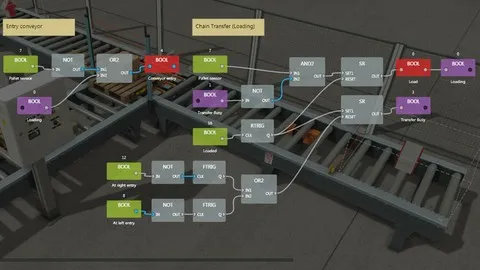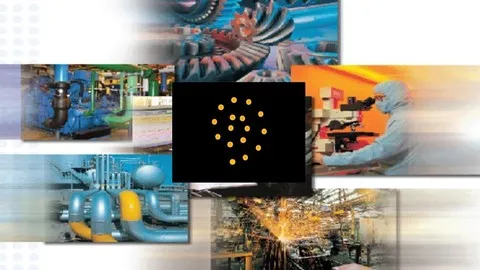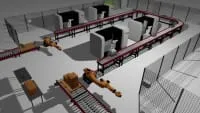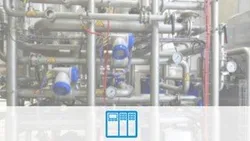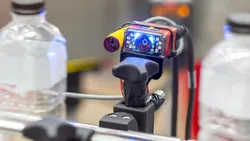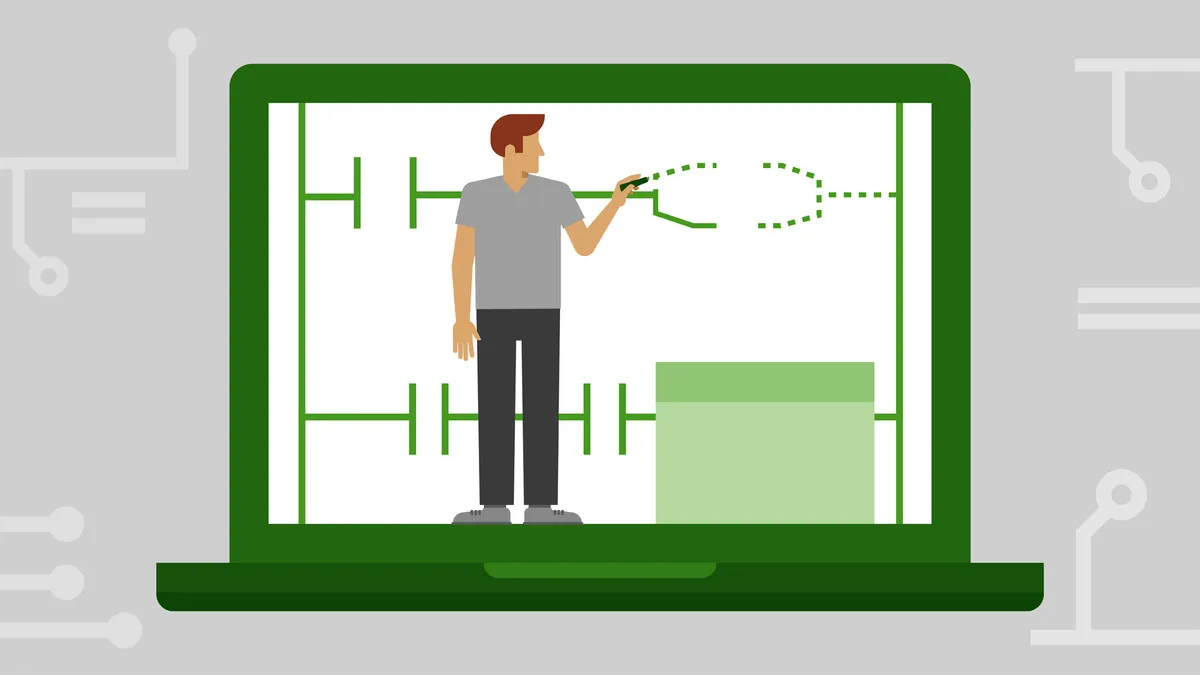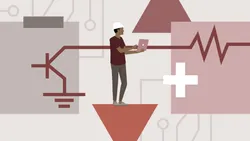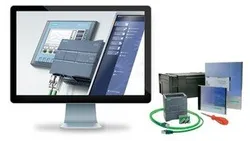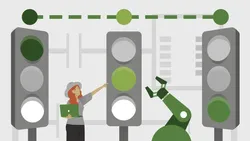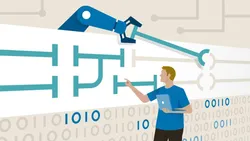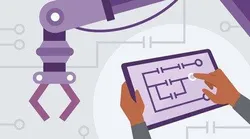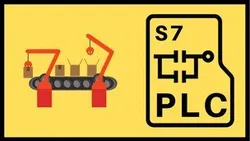Free Online Plc Courses and Certifications 2024
Programmable Logic Controllers (PLCs) are computer-based systems used to control industrial processes. They are used in a variety of fields, such as manufacturing, energy, and transportation. PLC courses are available to teach the fundamentals of programming and troubleshooting. People who are interested in automation and control engineering may find PLCs to be a suitable field.
Popular Courses
This course is the perfect opportunity to learn an in-demand skill and significantly boost your professional profile. Intro to PLC Programming is designed with beginners in mind and provides a good introduction to PLC programming. With this course, you will gain expertise in understanding and manipulating the logic that governs complex automated systems, potentially leading to greater job security and opportunities for advancement in your career. Hear what some of the students who have taken this course had to say: "This course is a good intro for anyone that has no knowledge of PLCs or electrical circuits" and "I believe that an inexperienced technician&electrician would get a lot out of this". Don't miss out on this chance to start your PLC programming journey today - sign up now and get ready to meet the exciting challenges and opportunities that await in the world of automation!
Learn MoreThis free course is perfect for those with no experience in PLC programming, providing an easy-to-follow tutorial to create a ladder logic program from scratch in under an hour. Ideal for beginners.
Learn MoreThis free PLC tutorial by Real Games provides an introduction to connecting I/O and simplifying complex logic. Learn the basics of PLC programming with this comprehensive course.
Learn MoreThis free course provides an introduction to PLC programming and control systems, giving learners the opportunity to gain a comprehensive understanding of the subject.
Learn MoreIndustrial control systems can be digitized and controlled with any Programmable Logic Controller (PLC) through the use of Mechatronics and Industrial Internet of Things (IIoT). This technology provides a powerful and efficient way to manage industrial processes.
Learn MoreThis free course provides an introduction to PLC programming, allowing users to create their first PLC program. Gain the knowledge and skills needed to understand the basics of PLCs and start programming.
Learn MoreThis course provides an in-depth look into the memory organization of Programmable Logic Controllers (PLCs). It covers the details of data storage, how it interacts with input and output, and how to approach memory structures to optimize processes. With this course, you will gain a better understanding of how to use PLCs to their fullest potential.
Learn MoreThis course provides an introduction to industrial sensors and their applications. It covers the operation principles, common applications, and programming of industrial sensors. It is suitable for anyone who wants to learn more about the use of industrial sensors in the automation industry. The course is designed to help you understand the basics of industrial sensors and how to use them in your projects. It will also provide you with the knowledge and skills to program and troubleshoot industrial sensors.
Learn MoreThis course is perfect for anyone interested in learning the basics of PLC ladder logic programming. It covers fundamental topics and provides real-world case studies to help you understand the application of these concepts. With this course, you will gain the knowledge and skills to start programming PLCs and create efficient ladder logic programs. Sign up now and start your journey to becoming a PLC programming expert!
Learn MoreThis course will teach you how to connect wire sensors to a PLC using two common methods, sinking and sourcing. You will learn the differences between the two methods and how to use them in different scenarios. You will also learn how to troubleshoot and debug any issues that may arise. By the end of the course, you will have a better understanding of how to use input sensors with PLCs. Sign up now and start learning today!
Learn MoreThis course is perfect for anyone who wants to learn the basics of Siemens S7-1200 PLC & HMI. With the help of Siemens TIA- Total Integrated Automation Software, you will learn wiring, programming and installation of S7-1200 PLC & HMI. You will be able to convert standard circuits to PLC Circuits, learn fundamentals commands of Siemens S7-1200 in TIA, and interface Siemens S7-1200 PLC with HMI. The course includes high-quality video tutorials, a copy of the presentation and PLC code used in the course, introduction lectures, exercise examples, industrial application examples, and a quiz to evaluate your performance. Buy the course today and get free updates.
Learn MoreThis course provides an introduction to PLC Sequencer Logic, a powerful tool for ladder logic programming. It covers the essential sequencer instructions, such as working with sequencer output, compare, and load instructions. With this course, you will gain a better understanding of how to use these instructions to create efficient and effective PLC programs. So, if you are looking to learn more about PLC Sequencer Logic, this course is the perfect place to start.
Learn MoreThis course provides an in-depth exploration of advanced PLC ladder logic programming instructions. It covers topics such as bit shift left, bit shift right, word shift operations, and subroutine instructions. It is designed to help learners understand the fundamentals of PLC programming and develop the skills to create complex control systems. With this course, learners will gain the knowledge and confidence to create efficient and reliable PLC programs.
Learn MoreThis course will teach you how to become a PLC Developer. You will learn how to bridge software and hardware, create basic PLC logic, and sequence multiple actions with PLCs for repetitive tasks. This course is perfect for anyone looking to gain a better understanding of how to use PLCs to solve complex problems beyond the computer. Click now to start your journey to becoming a PLC Developer.
Learn MoreThis course is designed for anyone who has zero knowledge about PLC and would like to learn the basics of PLC and ladder programming. In this course, you will learn the fundamentals of ladder diagram for PLC by using LogixPro simulator for electrical power engineering. You will understand the PLC hardware configuration, types of inputs and outputs, advantages of using PLC over classic control, and different PLC programming languages. You will also learn the definition of the PLC scan cycle, how to use markers in PLC, and how to use counters and timers. You will also do tasks in silo, batch, I/O, and door simulators. Get the simulator for free inside the course and practice all the given simulations in the lectures. Take this course to learn the basics of PLC programming using fun and useful simulations.
Learn MoreThis course titled "PLC Programming From Scratch To Advance" will teach you the skills needed to become proficient in S7-PLC programming, regardless of your prior knowledge. The course covers topics such as creating your own logic and making a PLC program from scratch, understanding PLC programming, standard HMI (Human-Machine Interface), creating a variety of ladder logic according to different environments, and learning the difference between digital and analog signals. The course will introduce you to HMI development and provide a general understanding of how an HMI program works. You will also learn to work with multiple software programs to create ladder logic and simulate different environments.
Learn More Plc Courses
Career Prospects
| Average Salary | Position Overview
|
PLC Programmer | $70,452 per year
| PLC programmers are typically employed in the manufacturing sector, IT companies, and the field of electrical engineering. Their primary duty involves maintaining and monitoring the operations of plants and machines that use programmable logic controllers. |
PLC Controls Supervisor | $3,744 per month | The PLC Controls Supervisor is responsible for managing personal computers, servers, programmable logic controllers (PLCs), network infrastructure, and telecommunications systems. They also lead projects that support various information systems, plant process controls, and technology requirements in the production facility. |
PLC Engineer | $159,688 per year | As a PLC controls engineer, your primary duties involve configuring, programming, testing, and deploying computerized control systems utilized for production automation and designing industrial equipment. |
Associate Director | $263,465 per year | The associate director's role includes managing the day-to-day program operations, creating program policies and procedures, conducting program assessments and evaluations, overseeing fiscal administration, and contributing to strategic planning efforts. |
Data Engineer | $160,359 per year | Data engineers are employed in diverse settings to develop systems that collect, organize, and transform raw data into meaningful information that can be analyzed by data scientists and business analysts. Their primary objective is to make data easily accessible to enable organizations to assess and improve their performance. |
Educational Paths
1. Technical or vocational school: Many technical and vocational schools offer certificate or associate degree programs in industrial automation or PLC programming.
2. Community college: Community colleges offer associate degree programs in electronics engineering technology, which often include courses on PLC programming and control systems.
3. Bachelor's degree: Pursuing a bachelor's degree in electrical engineering or a related field can provide a solid foundation in PLC programming and control systems.
4. Apprenticeship: Some companies offer apprenticeship programs where you can learn on-the-job skills in PLC programming and industrial automation.
5. Industry certifications: There are several industry certifications available in PLC programming, such as those offered by the International Society of Automation (ISA) and Siemens. These certifications can demonstrate your proficiency to potential employers.
Frequently Asked Questions and Answers
Q1: What does plc stand for?
A programmable logic controller (PLC) or programmable controller is an industrial computer that has been ruggedized and adapted for the control of manufacturing processes. It is designed to handle tasks such as controlling assembly lines, machines, robotic devices, or any activity that demands high reliability, ease of programming, and process fault diagnosis.
Q2: What does a plc have in it?
The PLC typically includes memory components known as ROM and EEPROM. These memory types in the PLC differ slightly in terms of memory erasure. The temporary memory is utilized while running the PLC program and is considered volatile, meaning it gets erased whenever the power is turned off.
Q3: What Plc courses can I find on AZ Class?
On this page, we have collected free or certified 146 Plc online courses from various platforms. The list currently only displays up to 50 items. If you have other needs, please contact us.
Q4: Can I learn Plc for free?
Yes, If you don’t know Plc, we recommend that you try free online courses, some of which offer certification (please refer to the latest list on the webpage as the standard). Wish you a good online learning experience!


